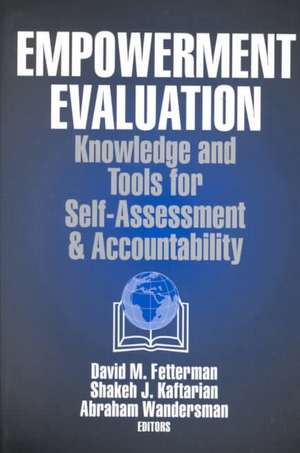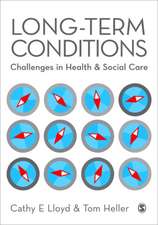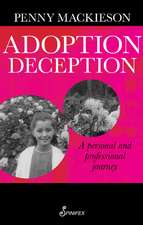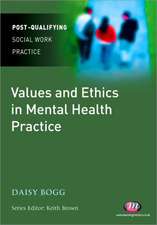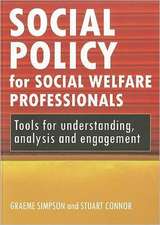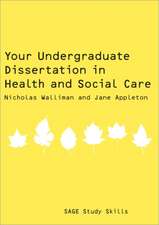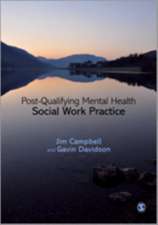Empowerment Evaluation: Knowledge and Tools for Self-Assessment and Accountability
Autor Sr. Fetterman, David M., Shakeh J. Kaftarian, Abraham Wandersmanen Limba Engleză Paperback – 30 sep 1995
Preț: 474.55 lei
Nou
Puncte Express: 712
Preț estimativ în valută:
90.82€ • 93.82$ • 75.58£
90.82€ • 93.82$ • 75.58£
Carte tipărită la comandă
Livrare economică 25 martie-08 aprilie
Preluare comenzi: 021 569.72.76
Specificații
ISBN-13: 9780761900252
ISBN-10: 076190025X
Pagini: 424
Ilustrații: 1
Dimensiuni: 164 x 230 x 26 mm
Greutate: 0.63 kg
Editura: SAGE Publications
Locul publicării:Thousand Oaks, United States
ISBN-10: 076190025X
Pagini: 424
Ilustrații: 1
Dimensiuni: 164 x 230 x 26 mm
Greutate: 0.63 kg
Editura: SAGE Publications
Locul publicării:Thousand Oaks, United States
Cuprins
PART ONE: INTRODUCTION AND OVERVIEW
Empowerment Evaluation - David M Fetterman
An Introduction to Theory and Practice
PART TWO: BREADTH AND SCOPE
Empowerment Evaluation and Accelerated Schools - Henry M Levin
Empowerment Evaluation and the W K Kellogg Foundation - Ricardo A Millett
PART THREE: CONTEXT
Empowerment Evaluation and State Government - Joyce Keller
Moving from Resistance to Adoption
The HIV Prevention Evaluation Initiative - Cynthia Gómez and Ellen Goldstein
A Model for Collaborative and Empowerment Evaluation
Empowerment Evaluation - Cheryl Grills et al
Building upon a Tradition of Activism in the African American Community
Realizing Participant Empowerment in the Evaluation of Nonprofit Women's Services Organizations - Arlene B Andrews
Notes from the Front Line
PART FOUR: THEORETICAL AND PHILOSOPHICAL FRAMEWORKS
Empowering Community Health Initiatives through Evaluation - Stephen B Fawcett et al
Empowerment Evaluation at Federal and Local Levels - Robert K Yin, Shakeh J Kaftarian, and Nancy F Jacobs
Dealing with Quality
Evaluation and Self-Direction in Community Prevention Coalitions - John F Stevenson, Roger E Mitchell, and Paul Florin
Fairness, Liberty, and Empowerment Evaluation - Dennis E Mithaug
PART FIVE: WORKSHOPS, TECHNICAL ASSISTANCE, AND PRACTICE
Empowering Community Groups with Evaluation Skills - Jean Ann Linney and Abraham Wandersman
The Prevention Plus III Model
Participatory and Empowerment Evaluation - Margret A Dugan
Lessons Learned in Training and Technical Assistance
The Plan Quality Index - Frances D Butterfoss et al
An Empowerment Evaluation Tool for Measuring and Improving the Quality of Plans
Building Community Capacity with Evaluation Activities That Empower - Steven W Mayer
PART SIX: CONCLUSION
Conclusion - David M Fetterman
Reflections on Emergent Themes and the Next Steps
Empowerment Evaluation - David M Fetterman
An Introduction to Theory and Practice
PART TWO: BREADTH AND SCOPE
Empowerment Evaluation and Accelerated Schools - Henry M Levin
Empowerment Evaluation and the W K Kellogg Foundation - Ricardo A Millett
PART THREE: CONTEXT
Empowerment Evaluation and State Government - Joyce Keller
Moving from Resistance to Adoption
The HIV Prevention Evaluation Initiative - Cynthia Gómez and Ellen Goldstein
A Model for Collaborative and Empowerment Evaluation
Empowerment Evaluation - Cheryl Grills et al
Building upon a Tradition of Activism in the African American Community
Realizing Participant Empowerment in the Evaluation of Nonprofit Women's Services Organizations - Arlene B Andrews
Notes from the Front Line
PART FOUR: THEORETICAL AND PHILOSOPHICAL FRAMEWORKS
Empowering Community Health Initiatives through Evaluation - Stephen B Fawcett et al
Empowerment Evaluation at Federal and Local Levels - Robert K Yin, Shakeh J Kaftarian, and Nancy F Jacobs
Dealing with Quality
Evaluation and Self-Direction in Community Prevention Coalitions - John F Stevenson, Roger E Mitchell, and Paul Florin
Fairness, Liberty, and Empowerment Evaluation - Dennis E Mithaug
PART FIVE: WORKSHOPS, TECHNICAL ASSISTANCE, AND PRACTICE
Empowering Community Groups with Evaluation Skills - Jean Ann Linney and Abraham Wandersman
The Prevention Plus III Model
Participatory and Empowerment Evaluation - Margret A Dugan
Lessons Learned in Training and Technical Assistance
The Plan Quality Index - Frances D Butterfoss et al
An Empowerment Evaluation Tool for Measuring and Improving the Quality of Plans
Building Community Capacity with Evaluation Activities That Empower - Steven W Mayer
PART SIX: CONCLUSION
Conclusion - David M Fetterman
Reflections on Emergent Themes and the Next Steps
Notă biografică
David M. Fetterman is President and CEO of Fetterman & Associates, an international evaluation consulting firm. He has 25 years of experience at Stanford University , serving as a senior administrator, School of Education faculty member, and School of Medicine Director of Evaluation. David is the Director of the Arkansas Evaluation Center and concurrently a Professor at San Jose State University, the University of Charleston, and the University of Arkansas. He was a Professor and Research Director at the California Institute of Integral Studies, Principal Research Scientist at the American Institutes for Research, and a Senior Associate at RMC Research Corporation. David is a past-president of the American Evaluation Association. He received both the Paul Lazarsfeld Award for Outstanding Contributions to Evaluation Theory and the Myrdal Award for Cumulative Contributions to Evaluation Practice. David also received the American Educational Research Association Research on Evaluation Distinguished Scholar Award. David is the founder of empowerment evaluation. He has published 14 books including: Empowerment Evaluation in the Digital Villages: Hewlett-Packard's $15 Million Race Toward Social Justice, Empowerment Evaluation Principles in Practice (with Wandersman), Foundations of Empowerment Evaluation, and Empowerment Evaluation: Knowledge and Tools for Self-assessment and Accountability (with Kaftarian and Wandersman). Shakeh Kaftarian is President and CEO of Kaftarian & Associates, a consulting firm offering empowerment evaluation services to national and international organizations. Her interests include community coalition building, substance abuse prevention programming, and women's health research. She has held positions as a research and evaluation scientist at the National Institutes of Health; Substance Abuse and Mental Health Administration; and Agency for Healthcare Research and Quality of the U.S. Department of Health and Human Services. She has served as Senior Advisor at the White House Office of National Drug Control Policy, and Adjunct Research Professor at the Uniformed Services University of the Health Sciences. She is the co-editor of the first edition of Empowerment Evaluation: Knowledge and Tools for Self-Assessment and Accountability (SAGE, 1996), and has authored a number of peer-reviewed articles and Federal evaluation research reports. She has also served as guest editor for the Journal of Primary Prevention; Prevention Science; Evaluation and Program Planning; and Journal of Community Psychology. Abraham Wandersman is a Professor of Psychology at the University of South Carolina-Columbia. Dr. Wandersman performs research and program evaluation on citizen participation in community organizations and coalitions and on interagency collaboration. He is a co-editor of three books on empowerment evaluation, and a co-author of several Getting To Outcomes accountability books (how-to manuals for planning, implementation, and evaluation to achieve results). Abraham collaborated with CDC to develop the Interactive Systems Framework for Dissemination and Implementation-the subject of two special issues of a peer-reviewed journal (2008, 2012). In 1998, he received the Myrdal Award for Evaluation Practice from the American Evaluation Association. In 2000, he was elected President of the Society for Community Research and Action (SCRA). In 2005, he was awarded the Distinguished Theory and Research Contributions Award by SCRA. In 2008, Getting To Outcomes won the American Evaluation Association's Outstanding Publication Award. In 2013, he was a Visiting Scholar at the Center for Injury Prevention of the Centers for Disease Control and Prevention.
Descriere
This outstanding group of evaluators from academia, government, nonprofits, and foundations explores empowerment evaluation, a method for using evaluation concepts, techniques, and findings to foster improvement and self-determination.
Empowerment Evaluation begins with an in-depth examination of this type of evaluation as it has been adopted in academic and foundation settings. The book then focuses on the various contexts in which empowerment evaluation is conducted, ranging from resistant environments (in which significant effort is required to move from passive-compliance orientations) to responsive environments (that already have a tradition of self-determination and community organizing). Interesting highlights concerning the role empowerment evaluation has played in the U.S. Department of Health and Human Services' substance abuse prevention programs are detailed throughout the book. The contributors also provide down-to-earth tools and technical assistance needed to conduct empowerment evaluation. This volume concludes with themes that emerge from the chapters and recommendations concerning next steps. This serves to strengthen the links between empowerment evaluation and community capacity building.
empow
Empowerment Evaluation begins with an in-depth examination of this type of evaluation as it has been adopted in academic and foundation settings. The book then focuses on the various contexts in which empowerment evaluation is conducted, ranging from resistant environments (in which significant effort is required to move from passive-compliance orientations) to responsive environments (that already have a tradition of self-determination and community organizing). Interesting highlights concerning the role empowerment evaluation has played in the U.S. Department of Health and Human Services' substance abuse prevention programs are detailed throughout the book. The contributors also provide down-to-earth tools and technical assistance needed to conduct empowerment evaluation. This volume concludes with themes that emerge from the chapters and recommendations concerning next steps. This serves to strengthen the links between empowerment evaluation and community capacity building.
empow
